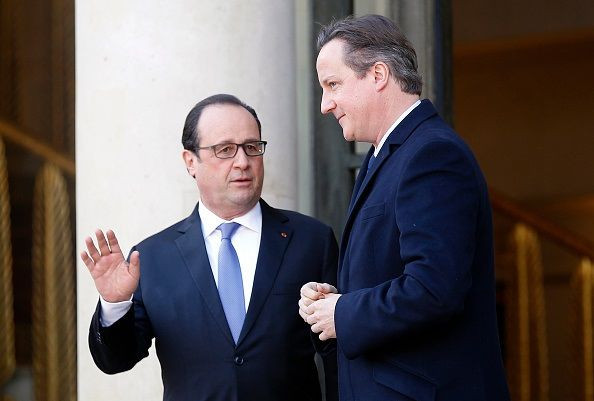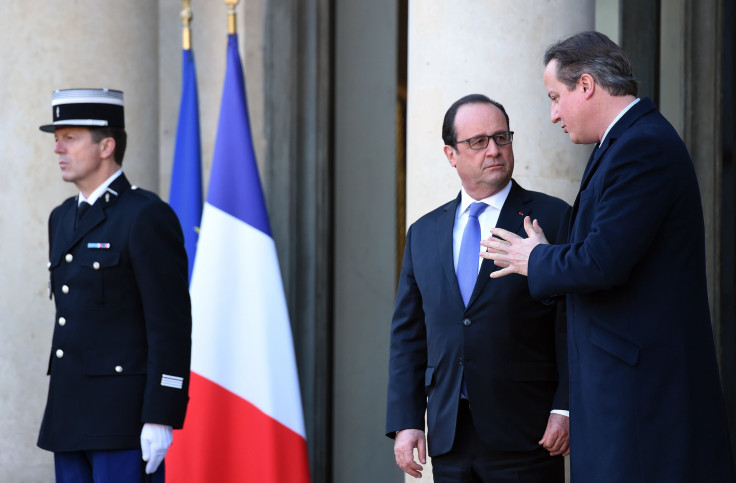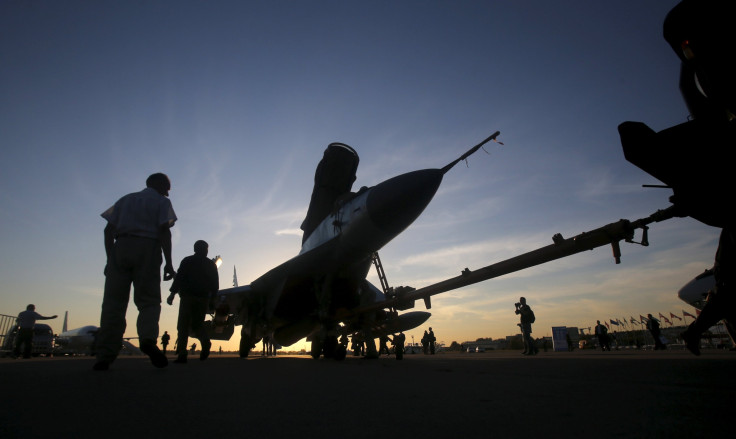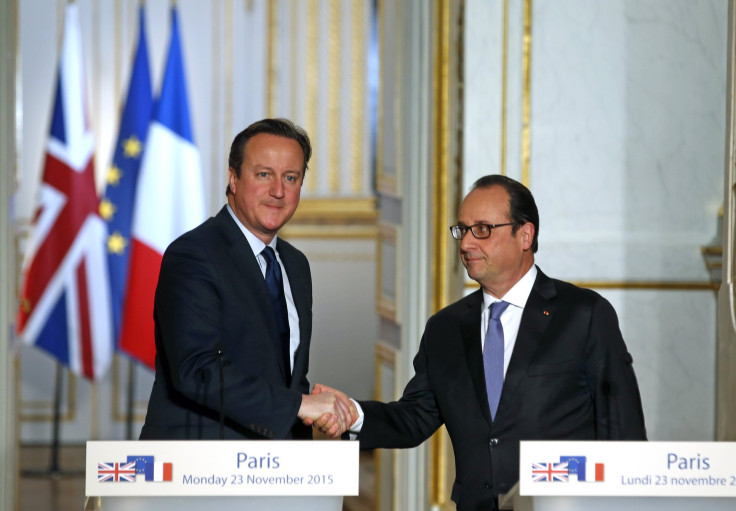France And Britain's Coordinated Counterterrorism Strategy Against ISIS In Iraq And Syria Leaves Unanswered Questions

BEIRUT -- In its multiple incarnations, and having forced its way into the heart of Western foreign policy, the Islamic State group has proved to be an elusive foe. But French President François Hollande and British Prime Minister David Cameron have promised to put up a good fight. In talks in Paris Monday, the two leaders spoke for global unity in the fight against the extremist group, also known as ISIS or ISIL, announcing a coordinated counterterrorism strategy and a bid to create a worldwide coalition to combat the militant group.
At the forefront of this new policy is an increased military effort to fight ISIS in Syria. But their efforts will be slowed by the widening debate over whether Syrian President Bashar Assad -- supported by Russia and Iran, and reviled by the U.S. -- should remain a part of the solution in Syria.
Until September, France, a founding member of the U.S.-led coalition against ISIS, had refrained from carrying out airstrikes in Syria. This policy of minimal-involvement changed following last week’s deadly Paris attacks, after which France launched a heavy bombing campaign against ISIS-held positions in Raqqa, northern Syria. On Monday, Cameron said that Britain, which has not launched any strikes in the country, should follow suit.

"I firmly support the action President Hollande has taken to strike ISIL in Syria,” the British prime minister said at a joint press conference in Paris. "It's my firm conviction that Britain should do so too.”
Cameron also offered France the use of the U.K.’s RAF Akrotiri airbase, strategically located in Cyprus, to carry out additional strikes in Syria.
Monday’s meeting with Cameron was just the first of a week of counterterrorism talks for Hollande. On Tuesday, the French president will meet with U.S. President Barack Obama and on Wednesday with German Chancellor Angela Merkel. The following day, he will meet with Russian President Vladimir Putin and Sunday with Chinese President Xi Jinping.
“In no time since the late 1940s have the Europeans been forced to think about their collective security, which is so intertwined, as today,” Alex Vatanka, an analyst at the Middle East Institute, said. “This time the U.S. is not holding their hands as much as before, and they need to seek maximum policy and effort coordination.”

France has also been in talks about a joint counterterrorism effort with Russia, which has been bombing ISIS in Syria as well as other Syrian opposition groups for nearly two months. Putin announced Monday that Russia will continue its Syria airstrikes “until those guilty of acts of terror are punished.” Both nations want to hit ISIS but disagree on the role of Assad in a diplomatic solution to the war. France has been adamant that any solution in Syria must include the removal of Assad, whereas Russia is aligned with Iran and the Syrian regime fighting to keep the embattled Syrian president in power.
"This is military coordination to avoid mishaps and accidents. One cannot talk of a military alliance, because precisely the views on Assad's fate remain radically different,” Marc Pierini, a former EU ambassador and visiting scholar at Carnegie Europe, said. "The E.U. and the U.S. still strongly hold the view that Assad cannot be the figure reuniting Syria."
But France’s move to fight fire with fire has Parisians worried that terrorist groups such as ISIS will seek further revenge in France and in other European countries. The group, which claimed responsibility for last week’s attacks, vowed to continue the “storm” of assaults in France as long as the country continues its bombing campaign in Syria.

“It will accentuate the fact that France is a target for terrorists. I think it risks becoming an outbidding of attacks, and the consequences could be terrible,” Gisele Renon, an accountant living in Paris, said. Although France’s immediate military response to the assaults in Paris was “reassuring,” Renon told International Business Times, "unfortunately we can see in the world what the result is -- a fight without an end and many innocents dead."
But others think France’s growing partnerships with the U.K and Russia are positive, as long as Britain is able to back France in ousting Assad.
"Now, in terms of the support from England ... maybe France will use this to reinforce its disagreement about Assad,” Lucie Legrand, a French artist in Paris, said.
Vatanka, from the Middle East Institute, echoed that statement, saying that Russia could be “convinced that a military-political process in which ISIS is destroyed and Assad gradually departs the leadership is the best possible outcome for Russian interests but that it requires some give-and-take with the likes of EU states, the U.S. and regional states in the Middle East.”
Experts agree that amping up an air campaign in Syria is not enough to combat the terrorist group. In the long run, a well-rounded strategy would include a solution to the conflict in Syria upon which major international powers could agree.
In the short term, “counterterrorism and strategies against radicalization are also very important” in stemming the growing threat of terror in France, Pierini told IBT.
But Hollande’s and Cameron’s call to arms is of little comfort to those in Paris who are still reeling from the brutal strikes at the heart of French society.
“I have this feeling of apprehension,” Legrand said. “They will surely want to hit us harder.”
© Copyright IBTimes 2024. All rights reserved.






















